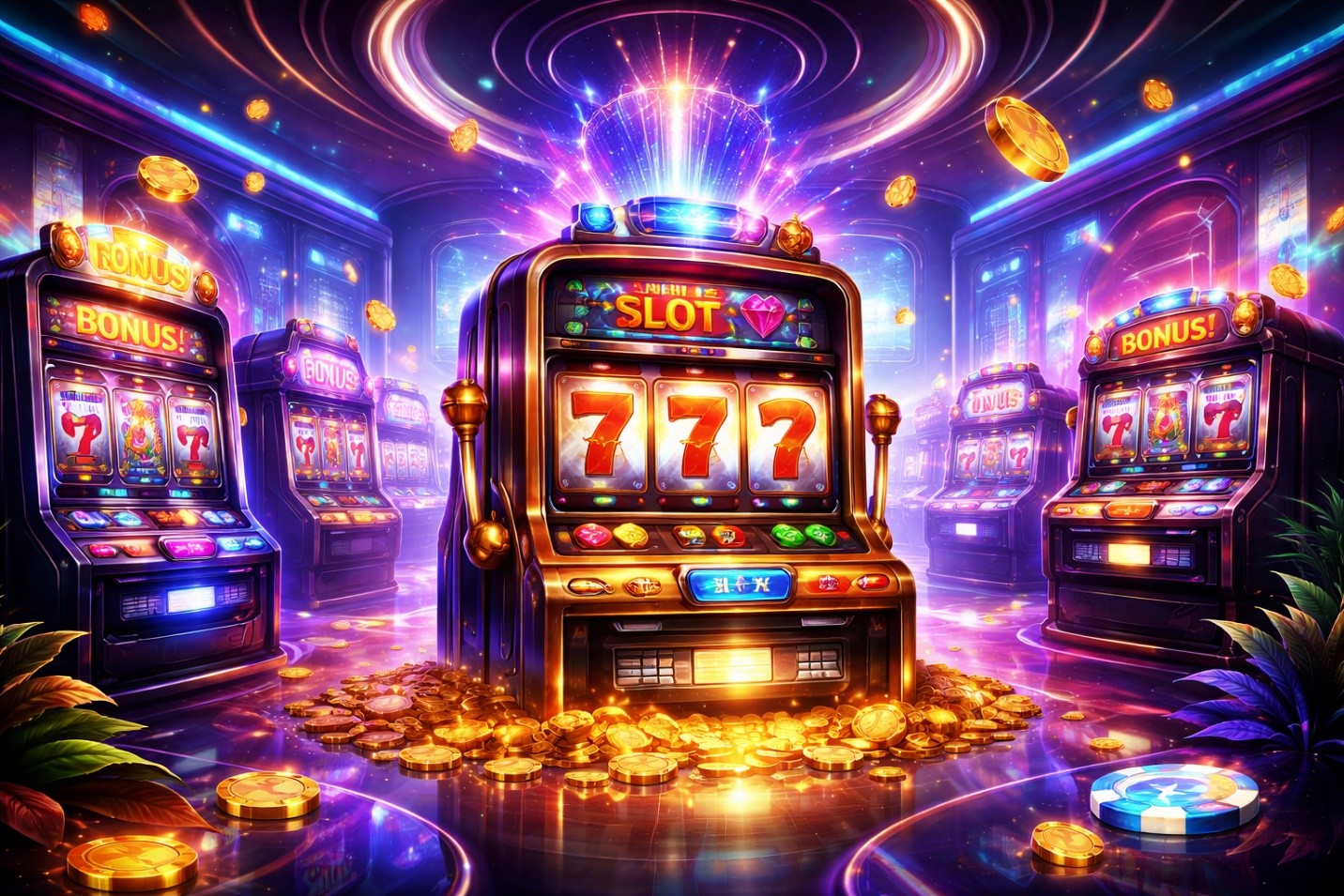Introduction
In recent years, online gaming has grown from a niche activity to a global phenomenon, drawing in millions of players across a diverse range of games. While the graphics, mechanics, and narratives of these games are often the focus of attention, there’s a deeper layer at play: the psychological motivations and behaviors that drive people to participate in online Krwin gaming. Understanding the psychology of play is essential for recognizing why gamers engage in this digital world, what needs are being fulfilled, and how these activities impact their emotional and mental well-being. This article delves into the core psychological elements that define the online gaming experience, explaining why we play, how games influence us, and what online communities offer to the modern gamer.
Why We Play: The Motivations Behind Online Gaming
Escapism and Stress Relief
One of the most commonly cited reasons for online Kcwin gaming is escapism. The digital worlds of games provide players with an opportunity to detach from real-world stressors and enter a space where they can control their surroundings, make their own rules, and feel empowered. The demands of daily life—work, relationships, financial pressures—can sometimes feel overwhelming, and online gaming provides a refuge, offering players a sense of relief.
Games like World of Warcraft, The Sims, or even simple puzzle games offer players a break from reality. In these worlds, players can be anyone, achieve anything, and have goals that, unlike in real life, are often clear and attainable. For many, the opportunity to immerse themselves in such controlled environments offers valuable stress relief and a break from reality’s unpredictability.
Achievement and Progress
Humans are naturally goal-oriented, and online games are structured around progression and achievement systems that tap into this drive. Whether it’s leveling up in Fortnite, unlocking new weapons in Call of Duty, or building the ultimate city in SimCity, games offer a structured path to accomplishment. This sense of achievement releases dopamine in the brain, the chemical responsible for pleasure and reward, making gaming a fulfilling activity.
Achievements in games often mirror real-world goals but in a more immediate and gratifying way. Tasks that might take months or years to accomplish in real life, such as mastering a skill or gaining recognition, can often be achieved more quickly and visibly in the gaming world. This constant progression keeps players engaged, driving them to come back for more.
Social Connection
For many, gaming is a social experience. Multiplayer online games, such as League of Legends or Overwatch, encourage players to work together to achieve objectives, fostering teamwork and communication. In these games, players often form lasting relationships with their teammates, sometimes even building strong friendships that extend beyond the game itself.
The need for belonging is a fundamental human motivator, and online gaming communities provide a sense of identity and membership. Gamers find camaraderie in shared goals, struggles, and successes. This social element is especially important for individuals who may have difficulty connecting with others in face-to-face settings, as online platforms offer a low-pressure environment for social interaction.
Mastery and Skill Development
Another major motivation behind online gaming is the desire for mastery. Games often present players with complex challenges that require strategic thinking, quick reflexes, and skill improvement. Whether it’s the mechanical precision required in a first-person shooter or the strategic foresight needed in a role-playing game, players are drawn to the opportunity to develop expertise.
This drive for mastery often leads to flow states—a psychological concept where individuals are fully immersed in an activity, losing track of time and self-awareness. In these moments, players are at their most engaged and satisfied, as they feel a perfect balance between the challenge of the task and their ability to succeed. This state of flow is one of the key reasons gamers keep coming back to their favorite titles.
The Emotional Impact of Online Gaming
Positive Emotions and Well-Being
Despite the popular perception that gaming can lead to isolation or negative behaviors, research shows that online gaming can foster positive emotions. Games provide a platform for joy, excitement, and satisfaction, particularly when players achieve goals, overcome challenges, or socialize with friends. Multiplayer games, in particular, create moments of shared excitement, such as when a team successfully completes a difficult mission or wins a match.
In fact, online gaming has been shown to increase well-being by offering players opportunities for self-expression, creativity, and empowerment. Games like Minecraft allow players to build complex structures, design their own worlds, and express their individuality, leading to a sense of autonomy and competence. These elements are key drivers of intrinsic motivation and can contribute to overall life satisfaction.
Managing Negative Emotions
While online gaming can evoke positive emotions, it also provides an outlet for processing and managing negative emotions. Games offer a safe space where players can confront and cope with feelings of frustration, anger, or sadness. Instead of bottling up emotions or facing real-world consequences, gamers can vent their frustrations within a controlled, virtual environment.
For example, competitive games allow players to channel their aggression in a structured manner, offering a way to release pent-up emotions without affecting their real-world relationships. Additionally, story-driven games with complex narratives often help players explore and process emotional conflicts, offering a cathartic experience similar to reading a novel or watching a film.
Addiction and Overuse
However, the emotional impact of online gaming is not without its challenges. For some individuals, gaming can become a compulsive behavior, leading to addiction. The sense of reward and progression inherent in many games can create a cycle where players feel the need to continue playing in order to maintain their status, rank, or in-game resources. This can lead to excessive gaming, which may interfere with real-world responsibilities such as work, relationships, and self-care.
The key issue in gaming addiction lies in the reward systems that games are designed around. Games often use variable reward schedules, which means that the outcome of an action (such as winning a battle or earning an in-game reward) is unpredictable. This uncertainty can make the player feel compelled to keep playing, hoping for the next win or reward. Over time, this behavior can spiral into problematic gaming habits, where the player prioritizes gaming over other aspects of life.
The Role of Online Gaming Communities
Identity and Belonging
Online gaming communities are not just a place to connect with others; they are also spaces where players can explore and develop their identity. Whether it’s choosing an avatar that reflects personal characteristics or joining a guild that aligns with one’s values, players use gaming communities to express who they are or who they wish to become.
Many gamers feel a strong sense of belonging to their online communities. For example, a member of a World of Warcraft guild may identify with the group’s values, sense of camaraderie, and shared goals. The bonds formed in these communities can be as meaningful as real-world friendships, particularly for individuals who struggle with social anxiety or other barriers to offline socialization.
Support and Inclusivity
Gaming communities often provide support systems for their members. Players frequently share advice, offer encouragement, and help one another improve their skills. In addition, many gaming communities are becoming more inclusive, welcoming players from diverse backgrounds. Game developers are taking steps to make their games more accessible and representative, incorporating characters and storylines that reflect a variety of identities.
However, toxic behaviors such as bullying, harassment, and exclusion are also challenges that these communities face. Moderation tools, reporting systems, and community guidelines are increasingly being implemented to create safer spaces where players can enjoy gaming without fear of discrimination or hostility.
Conclusion
The psychology of play in online gaming is a multifaceted topic, encompassing motivations such as escapism, achievement, social connection, and mastery. While gaming offers numerous emotional and psychological benefits, including stress relief and social interaction, it also poses challenges, such as addiction and toxic behavior within online communities. By understanding the psychological forces at play, both players and developers can work toward creating a healthier, more balanced gaming experience.





